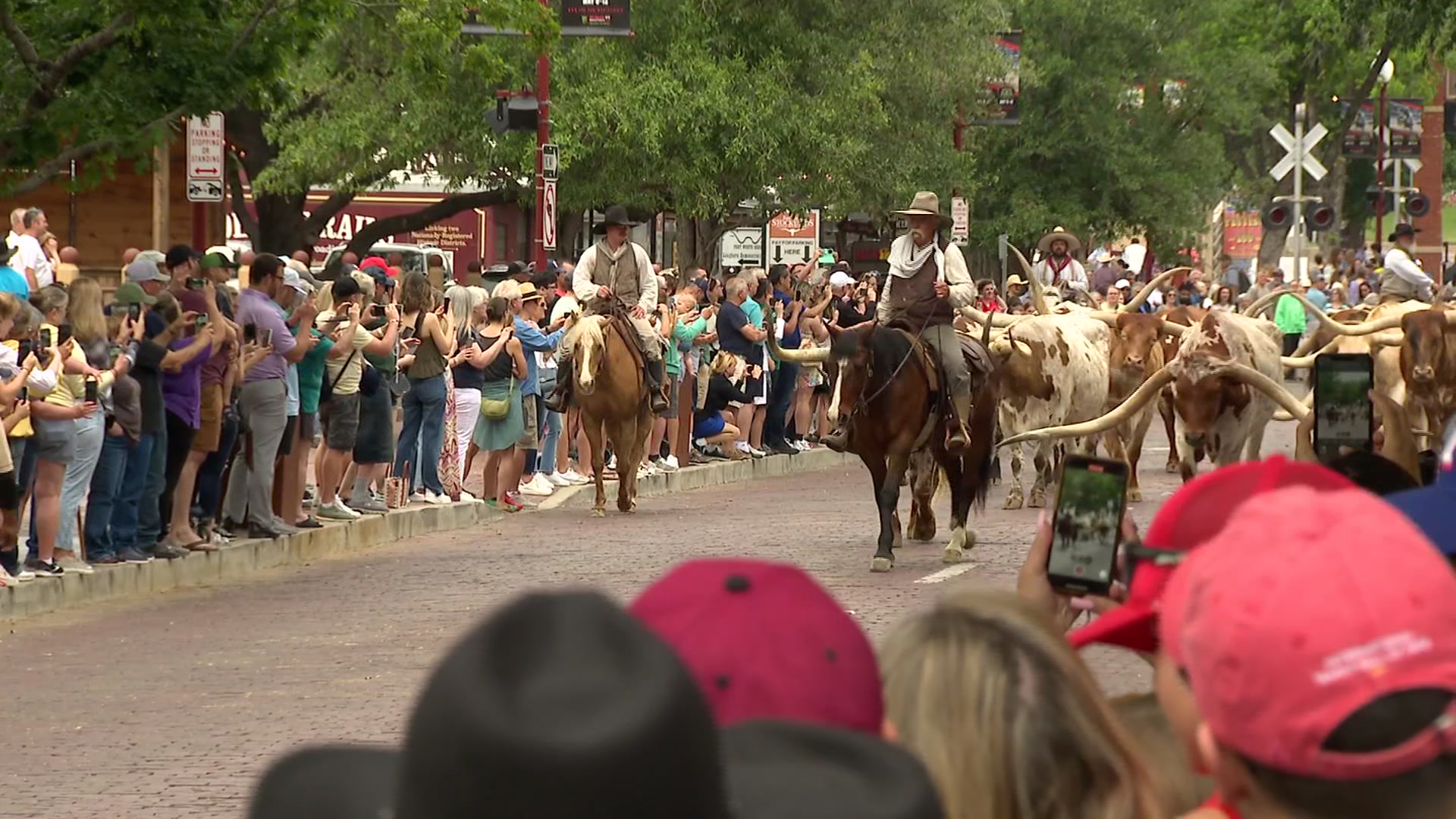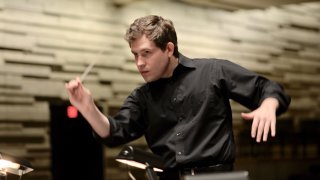
Becoming a conductor was never Richard McKay’s plan. Nearly ten years after founding Dallas Chamber Symphony, it is a multifaceted career offering endless musical opportunities and constant challenges. McKay’s next challenge is conducting Shostakovich’s chamber symphonies with the Dallas Chamber Symphony at the Moody Performance Hall in the Dallas Arts District on March 15.
The Dallas native attended University of Texas at Austin, initially earning a Bachelor of Music degree in piano performance. He was introduced to conducting through coursework and his teachers urged him to pursue it. “They all told me that this is something I should consider doing because they thought I has a knack for it, and I enjoyed it. I enjoyed the work when I started doing it,” McKay said.
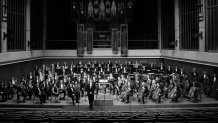
When the university’s conductor left his position, it opened some opportunities for McKay. Before beginning a graduate program for piano performance at UT Austin, McKay attended the Conductor’s Retreat in Maine. When he returned to Texas, he received a conducting teaching assistant contract for the orchestral program. “It was one of the moments that probably set me off on a new trajectory,” McKay said.
Get DFW local news, weather forecasts and entertainment stories to your inbox. Sign up for NBC DFW newsletters.
Within a year, he changed his graduate program from piano performance to orchestral conducting. He was the Music Director of the University Orchestra. “It was just sort of a trial by fire. I was terribly so unqualified when I got thrown into that fire, but I had no choice but to learn it all really fast,” McKay said. “Frankly, it’s there that I learned how to do everything with orchestras from programming the season to organizing the rosters to administrating the whole thing to conducting the shows. If there’s anything that prepared me for DCS, it’s that experience at UT Austin.”
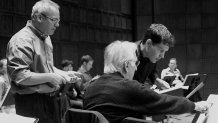
After earning a Master of Music degree in orchestral conducting, McKay earned a doctorate at the Peabody Conservatory. Compared with the holistic experience at UT Austin, the Peabody program was competitive, exacting and focused on working with seminar orchestras. “It was a very intense environment, instruction-wise,” McKay said. “Those two experiences together really prepared me for what I’m doing now.
McKay also trained at the American Academy of Conducting at Aspen and the Cabrillo Festival of Contemporary Music. He has performed with the Fort Worth Symphony, Dallas Opera Orchestra, Baltimore Chamber Orchestra, Irving Symphony, Mendoza Symphony, Estonian National Youth Symphony, and Manhattan School of Music Symphony. He has assisted many conductors including Günther Herbig, Carlos Kalmar, and Jaap van Zweden.
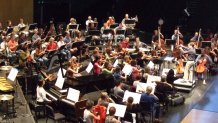
The construction of Moody Performance Hall was the catalyst for McKay to start Dallas Chamber Symphony. “When I toured the Moody Performance Hall when it was under construction, I was just so excited, because everywhere I looked, it had everything I wanted. It had great acoustics, it was the right shape, it had a pit, it’s going to have a sound shell, it was going to have a place where we could screen movies. It could not have been better. It was perfect in every way,” McKay said.
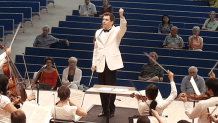
McKay filed paperwork to establish the orchestra as a non-profit organization in June 2012, received the non-profit designation in July and on August 30, McKay’s birthday, Dallas Chamber Symphony publicly announced its concert plans. The orchestra became the first arts organization to rent Moody Performance Hall.
The Scene
The orchestra’s first concert was in September 2012 and a second followed in October. From August to October, McKay lost 20 lbs. “It was such an intense time. I’ll never forget it. It was so hard. It took everything I had to get it to work,” McKay said.
And it did work. Ten years later, McKay’s focus is developing programming that meets the needs of many constituencies. The audience is paramount. “You want them to come to your concert, to understand what it’s about and to have an enjoyable time, even if it’s challenging music you’re playing,” McKay said. “You need to set it up so they can have an appreciation for why you’re programming it and what you’re accomplishing by presenting it.”
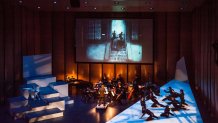
The ensemble’s advancement is crucial. “There’s the orchestra’s development to consider. It’s going to factor into the combinations of pieces you might put on a program and in what order over the course of a season or over the course of a few years to develop sections where maybe you have some talent that might need some development,” McKay said. “These are the long-term trajectories I’m thinking about when I’m laying out the seasons.”
Soloists play a different role at Dallas Chamber Symphony than at larger orchestras. “For us, solo opportunities are much more about cultivating talent within our own group. They are much more about familiarizing an audience with people they’ve never heard of before,” McKay said. “It’s the mid-size orchestras that are really attuned to the uniqueness of your local culture and the gaps in local arts programming.”
The March 15 concert features only one composer: Shostakovich, a Soviet-era Russian composer. The programming was selected long before Russia invaded Ukraine, but the music is poignantly relevant.
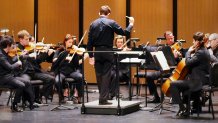
“You could not pick a composer who would have been more sympathetic to the difficulties of working under an authoritarian regime. Shostakovich is one such composer who spent so much of his life looking over his shoulder, concerned that he would be imprisoned or killed just for the music he was writing. It is topical and frankly, illuminates a lot of what is happening right now in a helpful way,” McKay said.
Preparing for a concert begins long before rehearsals, with the orchestra’s staff carefully preparing parts for each section to establish a unified vision of the work.
“With a symphony orchestra or chamber orchestra, part prep can take weeks and it is very involved and it’s really time-consuming work,” McKay said. “So probably 99% of what I do is preparation for the concert, and it’s all designed to allow really great magical things to happen onstage during the concert. If you do all the 99% really well, that last one percent looks effortless and beautiful.”
The orchestra has three rehearsals. “Probably the most important thing to everyone in the room is that I get a good night’s sleep before that first rehearsal,” McKay said. “Great rehearsals are every bit if not more enjoyable than great concerts because it’s so rewarding and so cathartic to get in there and to work together and to find your way through a piece of music to something that’s genuinely quite special and that was really is an exceptional achievement in the way that music is performed.”
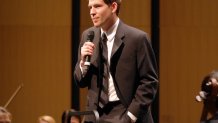
The night before a concert, sleeping is a time for problem-solving. “I tend not to study scores the night before a concert. I tend to just take whatever I get out of rehearsal to bed with me. I just think about it very often while I’m sleeping. I solve all kinds of problems while I’m sleeping,” McKay said.
After a final dress rehearsal on the day of the concert, McKay meets with his staff to go over any remaining details. He enjoys pre-show receptions. “I like to keep things as relaxed as possible,” McKay said.
All that is left for McKay is to enter to stage right and walk to the podium.
Learn more: https://www.dcsymphony.org/

